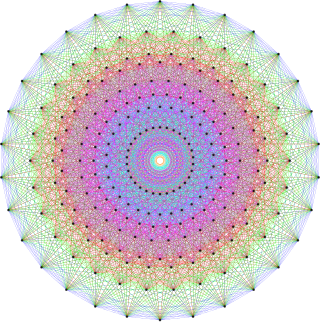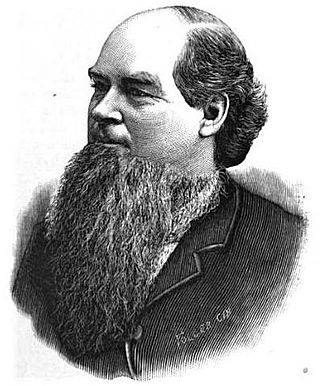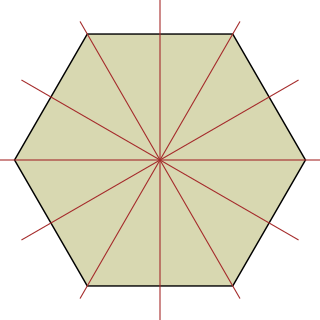
In mathematics, a Lie group is a group that is also a differentiable manifold, such that group multiplication and taking inverses are both differentiable.

Phi Kappa Psi (ΦΚΨ), commonly known as Phi Psi, is an American collegiate social fraternity that was founded at Jefferson College in Canonsburg, Pennsylvania in 1852. The fraternity has over ninety chapters at accredited four-year colleges and universities throughout the United States. More than 179,000 men have been initiated into Phi Kappa Psi since its founding. Phi Kappa Psi and Phi Gamma Delta, both founded at the same college, form the Jefferson Duo.

Frank Morley was a leading mathematician, known mostly for his teaching and research in the fields of algebra and geometry. Among his mathematical accomplishments was the discovery and proof of the celebrated Morley's trisector theorem in elementary plane geometry.
Sergei Petrovich Novikov was a Soviet and Russian mathematician, noted for work in both algebraic topology and soliton theory. He became the first Soviet mathematician to receive the Fields Medal in 1970.

Washington & Jefferson College is a private liberal arts college in Washington, Pennsylvania. The college traces its origin to three Presbyterian missionaries in the 1780s: John McMillan, Thaddeus Dod, and Joseph Smith. Early schools grew into two competing academies, with Jefferson College located in Canonsburg and Washington College located in Washington. The two colleges merged in 1865 to form Washington & Jefferson College. The 60-acre (24 ha) campus has more than 40 buildings, with the oldest dating to 1793. The college has a strong history of competing literary societies, dating back before the union of Jefferson and Washington Colleges. The athletic program competes in NCAA Division III. Nearly all students live on campus and roughly one third are members of fraternities or sororities.

Charles Page Thomas Moore was a lawyer and justice of the West Virginia Supreme Court of Appeals, who before the American Civil War had helped found the Phi Kappa Psi fraternity in 1852 at Jefferson College in Canonsburg, Pennsylvania.

William Henry Letterman was born in Canonsburg, Pennsylvania. He was the co-founder of the Phi Kappa Psi fraternity in 1852 at Jefferson College in Canonsburg, Pennsylvania.

Jean Alexandre Eugène Dieudonné was a French mathematician, notable for research in abstract algebra, algebraic geometry, and functional analysis, for close involvement with the Nicolas Bourbaki pseudonymous group and the Éléments de géométrie algébrique project of Alexander Grothendieck, and as a historian of mathematics, particularly in the fields of functional analysis and algebraic topology. His work on the classical groups, and on formal groups, introducing what now are called Dieudonné modules, had a major effect on those fields.
The Leroy P. Steele Prizes are awarded every year by the American Mathematical Society, for distinguished research work and writing in the field of mathematics. Since 1993, there has been a formal division into three categories.

David Eisenbud is an American mathematician. He is a professor of mathematics at the University of California, Berkeley and former director of the then Mathematical Sciences Research Institute (MSRI), now known as Simons Laufer Mathematical Sciences Institute (SLMath). He served as Director of MSRI from 1997 to 2007, and then again from 2013 to 2022.

Arthur Byron Coble was an American mathematician. He did research on finite geometries and the group theory related to them, Cremona transformations associated with the Galois theory of equations, and the relations between hyperelliptic theta functions, irrational binary invariants, the Weddle surface and the Kummer surface. He was President of the American Mathematical Society from 1933 to 1934.
The term Triad is used to designate certain historic groupings of seminal college fraternities in North America.

Representation theory is a branch of mathematics that studies abstract algebraic structures by representing their elements as linear transformations of vector spaces, and studies modules over these abstract algebraic structures. In essence, a representation makes an abstract algebraic object more concrete by describing its elements by matrices and their algebraic operations. The theory of matrices and linear operators is well-understood, so representations of more abstract objects in terms of familiar linear algebra objects help glean properties and sometimes simplify calculations on more abstract theories.

Alexander Blaine Brown was elected the seventh president of Jefferson College on October 14, 1847. The son of Matthew Brown, Jefferson College's fifth president, Brown was professor of belles lettres and adjunct professor of languages from 1841 to 1847. Under his presidency the college continued to prosper and in 1852 Phi Kappa Psi fraternity was founded at Jefferson College. Brown resigned in August 1856 due to ill health.

Washington & Jefferson College is host to 8 Greek organizations and a significant percentage of the undergraduate student body is active in Greek life. With 43% of women and 40% of men of the student body participating in "greek life," fraternities and sororities play a significant role in student life at W&J. The Princeton Review named Washington & Jefferson College 12th on their 2010 list of "Major Frat and Sorority Scene" in the United States. As of 2024, the Office of Fraternity & Sorority Life recognized 4 fraternities, Alpha Tau Omega, Beta Theta Pi, Delta Tau Delta, and Phi Kappa Psi, and 4 sororities, Delta Gamma, Kappa Alpha Theta, Kappa Kappa Gamma, and Pi Beta Phi. The fraternities are governed by a local Interfraternal Council and the sororities are governed by a local Panhellenic Council, while the Greek Judiciary manages broad policy violations at the chapter-level. All Greek organizations occupy College-owned houses on Chestnut Street on campus. All members of fraternities and sororities must pay the $100 "Greek Membership Fee," a levy designed to fund leadership seminars and other educational events for Greeks.
Claudio Procesi is an Italian mathematician, known for works in algebra and representation theory.
In algebraic number theory, the Ferrero–Washington theorem states that Iwasawa's μ-invariant vanishes for cyclotomic Zp-extensions of abelian algebraic number fields. It was first proved by Ferrero & Washington (1979). A different proof was given by Sinnott (1984).
Nolan Russell Wallach is a mathematician known for work in the representation theory of reductive algebraic groups. He is the author of the two-volume treatise Real Reductive Groups.

David Archibald Cox is a retired American mathematician, working in algebraic geometry.














